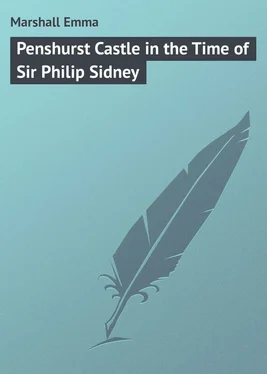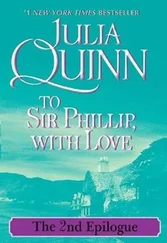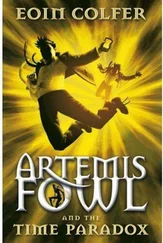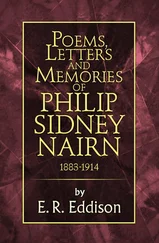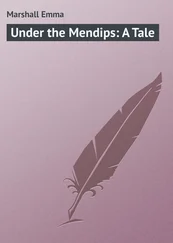Emma Marshall - Penshurst Castle in the Time of Sir Philip Sidney
Здесь есть возможность читать онлайн «Emma Marshall - Penshurst Castle in the Time of Sir Philip Sidney» — ознакомительный отрывок электронной книги совершенно бесплатно, а после прочтения отрывка купить полную версию. В некоторых случаях можно слушать аудио, скачать через торрент в формате fb2 и присутствует краткое содержание. Жанр: foreign_prose, на английском языке. Описание произведения, (предисловие) а так же отзывы посетителей доступны на портале библиотеки ЛибКат.
- Название:Penshurst Castle in the Time of Sir Philip Sidney
- Автор:
- Жанр:
- Год:неизвестен
- ISBN:нет данных
- Рейтинг книги:4 / 5. Голосов: 1
-
Избранное:Добавить в избранное
- Отзывы:
-
Ваша оценка:
- 80
- 1
- 2
- 3
- 4
- 5
Penshurst Castle in the Time of Sir Philip Sidney: краткое содержание, описание и аннотация
Предлагаем к чтению аннотацию, описание, краткое содержание или предисловие (зависит от того, что написал сам автор книги «Penshurst Castle in the Time of Sir Philip Sidney»). Если вы не нашли необходимую информацию о книге — напишите в комментариях, мы постараемся отыскать её.
Penshurst Castle in the Time of Sir Philip Sidney — читать онлайн ознакомительный отрывок
Ниже представлен текст книги, разбитый по страницам. Система сохранения места последней прочитанной страницы, позволяет с удобством читать онлайн бесплатно книгу «Penshurst Castle in the Time of Sir Philip Sidney», без необходимости каждый раз заново искать на чём Вы остановились. Поставьте закладку, и сможете в любой момент перейти на страницу, на которой закончили чтение.
Интервал:
Закладка:
'I would fain grow in the first, madam,' Lucy said, 'if only to please Mary, who is so good to me – my only friend.'
'I forgot you have no mother, poor child.'
'Nay, madam; only a cross-grained stepmother. Mary bears her quips and cranks like a saint. I cannot do so.'
'It is well to try to bear what you term quips and cranks. But we must repair to the hall now,' Lady Pembroke said; and then, addressing a gentlewoman who was standing at the lower end of the long table, she said, 'Mistress Crawley, be so good as to make room for Mistress Lucy Forrester at your side. She dines here to-day with Mistress Gifford.'
Mary already had her place pointed out to her, a little higher up the board with Ambrose; and the Countess of Pembroke, with a smile, said, as she passed to the gentleman who presided, —
'See that the young knight has sweet things enough to please his palate; and be sure, Master Pearson, that Mistress Gifford is well attended by the serving-men.'
The family and principal guests sat at the upper end of the hall, and amongst them was Mr Sidney's lifelong friend, Sir Fulke Greville.
There was a few moments' silence, when the chaplain, raising his hand, said a Latin grace; and then there was a clatter of trenchers, and the quick passing to and fro of the serving-men, and the sound of many voices as the meal proceeded.
That hospitable board of the Sidneys was always well spread, and to-day, at the upper end, Lady Mary had provided the best of viands for the entertainment of her daughter, and of her favourite son and his friend.
Lady Mary's face was shining with motherly pride as she looked at Philip and her fair daughter, who joined with keen delight in the conversation in which the two friends took the lead – her quick and ready appreciation of the subjects under discussion winning a smile from her brother, who continually referred to her, if on any point he and his friend held different opinions. Indeed, the Countess of Pembroke was not far behind her brother in intellectual gifts. The French and Italian literature, in which he delighted, were familiar to her also; and the Divina Commedia and the Vita Nuova were, we may well believe, amongst her favourite works. The great Poet of the Unseen must have had an especial charm for the lovers of literature in those times of awakening.
The mystic and allegorical style, the quaint and grotesque imagery in which Dante delighted, must have touched an answering chord in the hearts of scholars like Philip Sidney and the Countess of Pembroke.
That Philip Sidney was deeply versed in the story of Beatrice – following her with devout admiration, as her lover showed her in her girlish beauty, and then in her matured and gracious womanhood – we may safely conclude.
At the time of which we write, he was making a gallant fight against defeat, in the struggle between love and duty, striving to keep the absorbing passion for his Stella within the bounds which the laws of honour and chivalry demanded, at whatever cost. No one can read the later stanzas, which are amongst the most beautiful in Stella and Astrophel , without feeling that, deep as was his love, his sense of honour was deeper still.
Nor is it unreasonable to feel that, as he followed the great Master through those mysterious realms, guided by the lady of his love, pure and free from the fetters of earthly passion, Philip Sidney would long with unutterable longing that his love might be also as wings to bear him heavenward, like that of Dante for his Beatrice, whose name is for all time immortal like his own.
When the grace was said, the company at the upper end of the great hall rose, and left it by the staircase which led to the private apartments of the spacious house.
The ladies passed out first, and the Countess of Pembroke, turning at the foot of the stairs, said, —
'Mistress Crawley, bid Lucy Forrester to follow us with Mistress Gifford and the boy.'
But Lucy was thinking more of Mr Philip Sidney than of her summons to attend his sister. She was hoping for a smile from him, and felt a thrill of disappointment as he put his arm through Sir Fulke Greville's and turned away to the principal entrance with his friend.
Lucy's eyes followed them, and she was roused from her dream by a sharp tap on her shoulder.
'Did you not hear my lady's order, child? Methinks you will need to mend your manners if you wish to enter her service.'
Lucy's face grew crimson, and she gave Mistress Crawley a look, which, if she had dared, she would have accompanied by a saucy word.
Mary Gifford, who was waiting for her sister, said gently, —
'We are to follow quickly, hasten, Lucy, Mistress Crawley is waiting.'
Lucy tossed her head and did not hurry herself even then. She had many admirers in the neighbourhood besides George Ratcliffe, and one of them said to him, —
'It is a shame if old Mother Crawley has that little beauty as her servant. She will trample on her and make her life a burden to her, or I am mistaken.'
George resented any interference about Lucy from another man, and he greatly objected to hear her called 'a little beauty;' for George's love for her was that of a respectful worshipper at the shrine of a divinity, and he could not brook anything like familiar disrespect in others.
'Mistress Forrester,' he said, 'is likely to win favour wherever she may go, and she will serve the Countess of Pembroke rather than Mistress Crawley.'
A provoking laugh was the answer to this.
'You can know naught of the life of a household like my Lady Pembroke's. The head waiting-woman is supreme, and the underlings are her slaves. They may sit and stitch tapestry till they are half blind, and stoop over the lace pillow till they grow crooked, for all my lady knows about it. Ask Mistress Betty here, she knows what a life Mistress Crawley can lead her slaves.'
The person addressed as Mistress Betty was beginning to answer, when George turned away to go to the stables, where he thought Mr Sidney had probably preceded him with Sir Fulke Greville, to examine the points of the two fresh steeds he had purchased for the tournament. But he could see nothing of Mr Sidney, and, meeting his brother Humphrey, he heard from him that he had walked away down the avenue with Sir Fulke Greville, apparently in earnest conversation, and that they would not care to be disturbed.
George lingered about disconsolately, and at last left the Park and went towards the river, which he knew Mary Gifford and Lucy must cross on their homeward way. At least he would have the chance of mounting guard over Lucy, and be present if the man who had so lightly spoken of her should be so presumptuous as to follow her.
After long waiting, George saw Lucy and her sister and Ambrose coming out of the gateway leading from the Park, and he was well satisfied to see that his brother Humphrey, and no other squire, was in attendance.
Ambrose was tired and a little querulous, and dragged heavily at his mother's hand. Humphrey offered to carry the boy, but he resented that as an indignity, and murmured that he had not seen Mr Sidney, and he wanted to ride his horse again.
'Mr Sidney has other matters on hand than to look after a tired, cross boy,' his mother said. 'Come, my son, quicken your pace somewhat, or we shall not be at home for supper. It was a grand treat for you to be entertained by my Lady Mary's sons, and you should be in high good humour,' she continued.
But poor little Ambrose kept up the same murmured discontent, of which the burden was, —
'I want to ride on Mr Sidney's horse,' and he dragged back more persistently than ever, till his mother's fair face flushed with the exertion of pulling him up the steep hill, over which the low westering sun was casting a glow, which was hot for the time of year.
Читать дальшеИнтервал:
Закладка:
Похожие книги на «Penshurst Castle in the Time of Sir Philip Sidney»
Представляем Вашему вниманию похожие книги на «Penshurst Castle in the Time of Sir Philip Sidney» списком для выбора. Мы отобрали схожую по названию и смыслу литературу в надежде предоставить читателям больше вариантов отыскать новые, интересные, ещё непрочитанные произведения.
Обсуждение, отзывы о книге «Penshurst Castle in the Time of Sir Philip Sidney» и просто собственные мнения читателей. Оставьте ваши комментарии, напишите, что Вы думаете о произведении, его смысле или главных героях. Укажите что конкретно понравилось, а что нет, и почему Вы так считаете.
